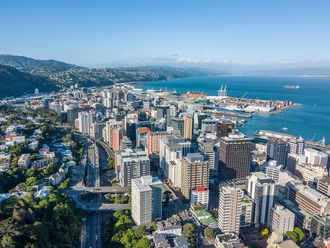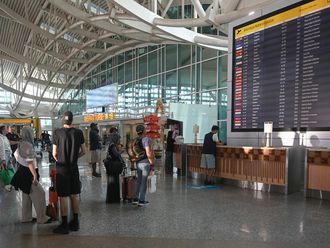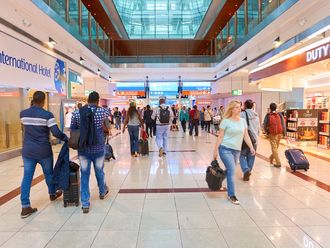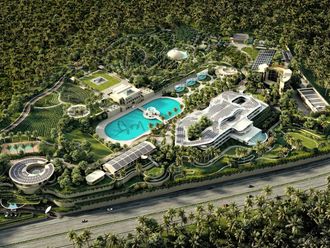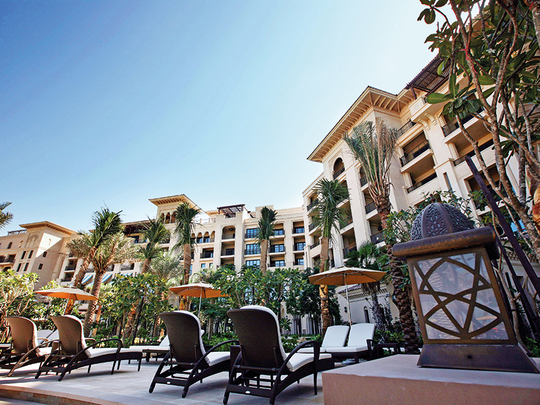
Dubai: Ultra-luxury hotel group Four Seasons is decelerating its aggressive growth strategy in the Middle East, which has seen it open seven hotels since 2014.
Represented in five of the six Gulf countries, in addition to several hotels in North Africa and the Levant, Four Seasons has a total of 17 hotels in the Middle East and North Africa (Mena) region.
Most recently, a Four Seasons opened in Tunisia, a popular holiday destination for Gulf nationals.
“I often get asked, not so much by the press but by our staff, why we are opening a hotel in Tunisia,” Casson told Gulf News in a recent interview.
“They ask, ‘isn’t it dangerous?’”
Tunisia was hit by two major terrorist attacks in 2015 — in June, the popular tourist resort of Port El Kantaoui was attacked by a gunman; three months before that, the capital’s Bardo National Museum suffered a similar mass-shooting, leaving 24 dead.
Its porous border with Libya, where there is political instability and an absence of security, has left Tunisia in an ongoing state of emergency.
“I think it’s an important reflection on our focus in business: It isn’t situational, we take a wider view on the potential of any destination,” he said.
Confident
Tunisia has historically been a popular tourist for both Europeans, due to its exotic appearance but relatively short flight time, and travellers from the region, who feel welcome in a familiar environment, and appreciate commonality in the language, according to Casson.
The top executive said he was confident in Tunis as a destination, but added that he was “encouraged in the short-term to see that flights from European capitals are starting to return to Tunis.”
It was recently announced that UK travel operator TUI would begin flying between the UK and Tunisia imminently, following on from popular budget airline Thomas Cook, who resumed their flights in February.
“The tourism market is going to take time to come back and evolve, but it’s been incident-free for a couple of years now, while many other, more well-trafficked European cities have been subject to terrorist incidents,” Casson said, adding: “It’s just a question of confidence returning.”
Long absent from the country, the UAE has proved to be fruitful in recent years for the hotel group, with Four Seasons properties springing up in Abu Dhabi, DIFC and Jumeirah.
Despite this, the hotelier said that Four Seasons was not actively chasing hotel opportunities in Abu Dhabi or Dubai, instead stating that only Saudi Arabia was of particular “strategic interest” to the group at this time.
“We see further opportunity there. We’re encouraged by the economic revival of Saudi Arabia,” Casson said.
In October 2017, Four Seasons announced a new hotel in Makkah, Saudi Arabia, describing it as “a striking new building adjacent to the Grand Mosque” that would “bring the Four Seasons experience to the Holy City.”
“That’s an important indicator of our intent,” Casson said.
Four Seasons is 47.5 per cent owned by Al Waleed Bin Talal’s Kingdom Holding Company, one of the largest conglomerates in Saudi Arabia.
Bill Gates also owns a 47.5 per cent stake through his Cascade investment firm.
This year is set to be a bumper one for Saudi Arabia’s hotels, with almost 60 per cent of the country’s current construction pipeline forecast to open in 2018, according to a report published in February by travel consultancy STR.
That amounts to 84 new hotels opening this year in total, bringing with them 27,281 new rooms.
Performance
According to the report, Riyadh, Jeddah, Makkah and Al Khobar remain the busiest areas for hotel construction across the country.
This massive increase in supply is leading to plummeting revenues across the country’s hotels.
The Jeddah hotel market was among the region’s poorest performing in February, recording a 39.7 per cent decline in profit per room on the back of a drop in revenue and rising costs, according to research firm HotStats.
Asked if he was concerned about such negative conditions, Casson said he remained unfazed.
“We’re all subject to the same market forces, but I think a Four Seasons can stimulate demand and create activity in the market where it’s not so naturally present,” he said.
“Do I think the country will generate [economic activity]? That’s yet to be seen, but we’re impressed with the vision and the speed of movement towards that vision [by the Crown Prince Mohammad Bin Salman],” he added.
Looking forward, Casson said that there would be less new hotels from Four Seasons in the Gulf, and more in Europe.
“I think forward-looking development will be less in the GCC, with the exception of Saudi Arabia where we’d be very open to looking at opportunities … and the strategic opportunities are cities in Europe where we’re not currently located,” he said.
In North Africa, he added, “we’re starting to be fairly well represented.”


